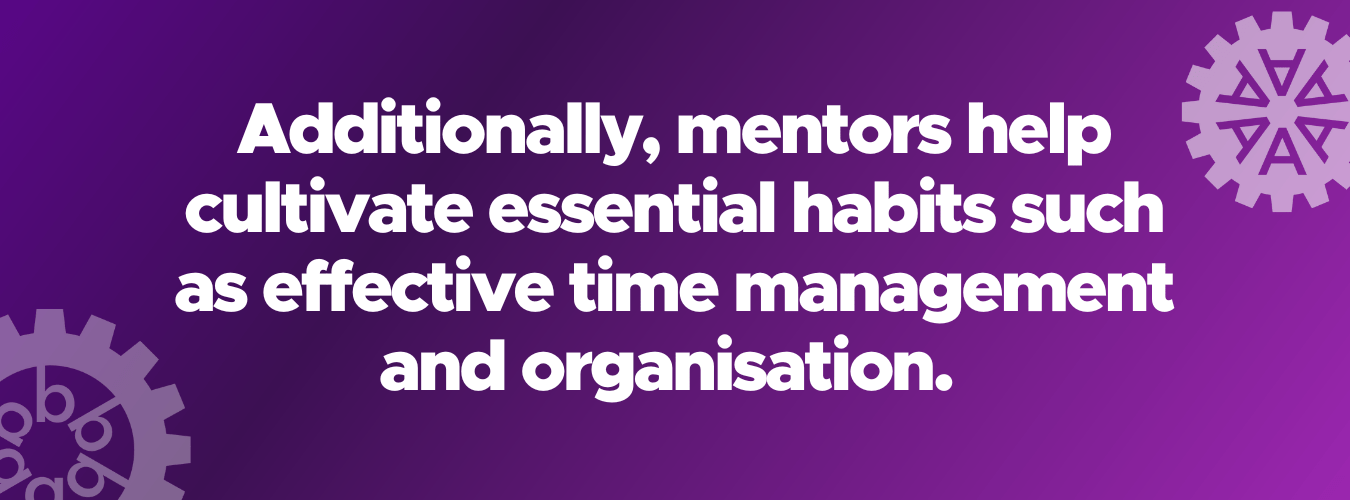Importance of Mentorship

In a world where children face a myriad of challenges and uncertainties, mentorship stands as a powerful beacon of guidance and support on their educational journey.
As young minds navigate the complexities of learning and personal growth, the presence of a mentor can make all the difference, shaping their character, honing their skills, and unlocking their true potential.
It is a well-known fact that children often model the behaviour of adults they are surrounded by, and having a suitable mentor can significantly enhance their ability to become independent learners.
The advantages mentors bring to the table are extensive - from encompassing educational support to providing valuable feedback about homework to increasing confidence and continuous encouragement - which all contribute to a child’s overall growth and development.
In this blog post, we will delve into the key benefits of mentorship for children, illuminating its importance in their journey of growth and learning.
Is your child struggling to keep up with schoolwork? Are they falling behind? Are they bored in class? Or are you looking for extension work for your child? Check out our eBook to learn more about how we help your child improve academically and build confidence through our in-centre after-school tuition.
1. Increasing Confidence and Empowering Independence
Confidence is the fuel that drives learning and personal development. As educators, we understand the importance of building confidence in young learners. A mentor becomes a steadfast pillar of support for children, providing not only educational guidance but also a belief in their capabilities.
Through a more informal mentoring relationship, mentors express an understanding of their children's aspirations and challenges, instilling in them a sense of self-assurance and confidence. For introverted or reserved children, a mentorship and development program guides them out of their shells and empowers them to embrace their unique strengths.

2. Accountability and Leadership Skills
Achieving success and personal growth requires accountability and effective leadership. A successful mentor plays a pivotal role in guiding and motivating, setting challenges for children that are tailored to their goals and weaknesses.
This added layer of accountability encourages children to remain committed to their pursuits, cultivating a sense of responsibility and ownership of their actions. Moreover, mentors ensure goals are achievable by breaking them down into manageable steps.
3. Fostering Resilience in the Face of Challenges
Life is full of challenges, and the path of education is no exception. During difficult times, a mentor can become a steady anchor, providing essential guidance and encouragement to navigate through adversities.

The ability to bounce back from failures extends to mentoring relationships well beyond the academic realm, with successful mentoring relationships equipping children with valuable knowledge and the emotional strength to confront life's trials with unwavering determination.
4. Nurturing Emotional Intelligence
Emotional intelligence is a critical skill for overall success and well-being and it finds its roots in mentorship. Through this transformative relationship, children cultivate self-awareness, self-regulation, empathy, and social skills.
Mentors lead by example, demonstrating effective emotional management and fostering healthy interpersonal relationships. By encouraging open discussions about emotions and providing a safe space for self-expression, mentors help children become more emotionally intelligent, enhancing their self-confidence and enriching their social interactions with peers and educators.
5. Individualised Goal-Setting and Lifelong Learning
Mentors guide children in setting personalised learning goals, whether short-term or long-term. By developing action plans, honing time management and communication skills, and encouraging self-reflection, mentors instil in their mentees a lifelong love for learning and self-improvement. These skills transcend the classroom, becoming invaluable assets in every facet of life.

6. Encouraging Exploration of Interests and Passions
A good mentor also becomes an inspiring guide in the exploration of interests and passions. By introducing children to diverse subjects, hobbies, and extracurricular activities, mentors ignite curiosity and a deep love for learning.
This exposure to fresh perspectives and varied experiences unlocks hidden talents, fosters personal and professional growth, and helps children discover their innate strengths and passions. The mentor's encouragement becomes a catalyst for children to pursue fulfilling career paths and lifelong passions.
7. Embracing Diversity and Inclusion
Mentors often come from diverse cultures, generations, and perspectives, creating an enriching environment of mutual learning and understanding. This exchange of knowledge and experiences fosters a broader worldview for both, nurturing empathy and appreciation for different ways of thinking.
If your child requires additional support to address weaknesses within their learning or needs extension work NumberWorks’nWords can help! Our tutoring methods are designed to support children in achieving their best results while building confidence and celebrating success.
To learn more about our math and English after-school tutoring, reach out to your local centre or book a free assessment today.
Our tutoring methods are designed to support children in achieving their best results while building confidence and celebrating success. To learn more about our math and English after-school tutoring, reach out to your local centre or book a free assessment today.




